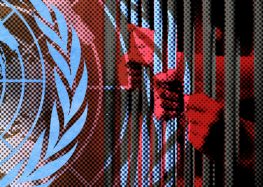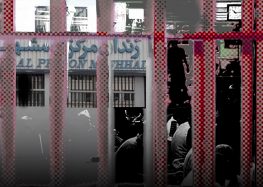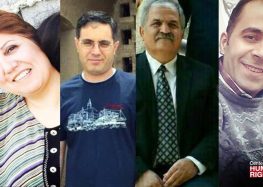Three Years in Prison, Three Years in Exile, and a Three Year Ban on Speeches for Religious Scholar
Ahmad Ghabel, a theological researcher and government critic, spoke with the International Campaign for Human Rights in Iran after being released on $50,000 bail by Branch 5 of Mashad’s Revolutionary Courts. “I do not have any new charges. It was claimed that there are new charges, but when I reviewed them, I realized that they were the same old charges. During my trial sessions, also, only the original seven charges raised against me were reviewed, and I was acquitted of two of them. I have not seen my ruling yet, but my wife has told me about them. The other two charges which led to the sentencing are ‘propagating against the regime,’ the punishment for which is defined by the law as one year in prison, and the other is ‘actions against national security,’ which has three years in prison [as punishment]. This means that the maximum punishment stipulated for this in the law has been determined for me. Three years in prison and three years’ exile to my city of residence, and three years’ ban on speaking to groups larger than three people; this is what the lower court has issued and it’s not clear what may happen in the appeals court, or whether there would be any changes or not,” said Ghabel.
“Of the 36 months to which I was sentenced, 16 months have been converted to a cash fine of $4,000. Other than this, I also had a non-political charge which was related to my having satellite [TV] equipment in my home, for which I was further fined $100. In fact I should have stayed in prison for 20 months, but they decided to release me on bail until the appeals court issued its ruling,” added Ghabel.
“One [of my charges] was the matter of propagating falsehoods in my writings and speeches, which was proven to be unfounded, and I was acquitted from this charge. The other one was insulting Ayatollah Khamenei, for which there was no evidence against me in the case, except for the Najaf Abad Intelligence Office’s doctoring of the text of my speech. But when the original text [of my speech] was given to the court, the judge realized that I had not insulted [the Leader] at all, and I was acquitted from this charge, as well,” said Ghabel about the charges for which he was acquitted.
“Before I went to prison again I was seriously ill for about 50 days, but when I recovered a little, I told my friends that I had been ill because I was going to jail and wanted them all to know that if my illness intensified inside the prison, it was not because something bad had happened to me in prison and not to worry about me. During the time I was in prison, I took the medicine sent to me, so my illness did not intensify. I don’t usually get upset when I go to prison, because I think that I have acted properly according to my duty, and I have provoked some to confront me. I had more peace inside the prison. Maybe a part of why I got sick outside the prison was because I heard bad news and things that I could not ignore,” Ghabel said about his physical conditions in prison.
Ahmad Ghabel is one of the individuals who publicly raised issues about widespread secret executions of drug trafficking suspects inside Mashad’s Vakilabad Prison. “I need more time to think and decide about new things to discuss. I would like to have strong reasons for the things I publish or say during my interviews, so that even the judges can tell that I have only said what I said based on serious documents. I spent more time in prison the last time, and I spoke after a whole month. Now I will need at least two weeks. During the few days since my release, I have only been involved in family visits,” he said about reports about the situation at Mashad’s Vakilabad Prison.
Ghabel was first arrested on 21 December 2009 as he tried to leave Mashad in order to participate in the funeral ceremony of the late Ayatollah Hosseinali Montazeri. He remained in prison for six months. Ghabel was a student of Ayatollah Montazeri’s. He was arrested for the second time on 14 September 2010 after being summoned to the Revolutionary Courts. In some of his interviews and articles, Ghabel has referred to widespread secret executions inside Mashad’s Vakilabad Prison (particularly drug trafficking suspects), saying that during his detention inside the prison, he had become aware of a large number of executions of convicts, only ten percent of which were reported in the media.






